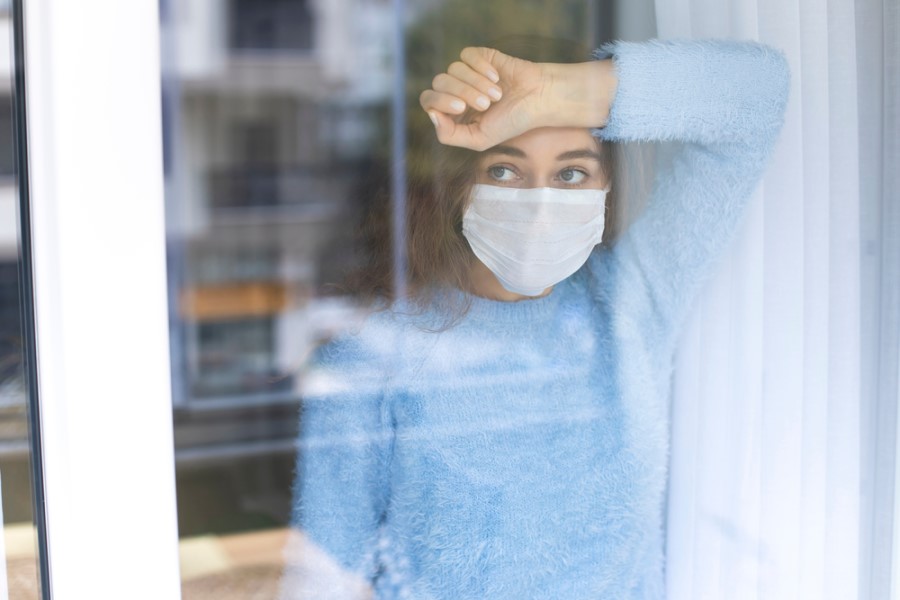Employers urged to put mental wellbeing first to support employees with the impact of Covid-19

As humans we are very good at finding the positive out of adversity, so alongside this devastating virus, many of us have managed to build stronger family and community connections to help us get through it.
Now, little by little, the world is starting to get into a new rhythm. And as the gradual return to our previous routines increases, it is critical that we continue to embrace the connections we have all built because we are not physically or psychologically out of danger yet.
Comparing the mental health of SARS patients with Covid-19 patients
As we are currently experiencing, viruses like Covid-19 and SARS threaten not only physical wellbeing but also the mental health of those infected. The risk and potential impact of this has been highlighted in a study of the 2003 SARS outbreak.
During this SARS outbreak, more than 8,000 individuals in 29 countries were infected in seven months. In Hong Kong alone, 1,755 individuals were infected, and 299 died. The immediate mental health impact of SARS on individuals was reported to include significantly higher stress levels, as well as poor sleep, depressed mood, weepiness, nightmares, poor concentration, and in some cases, acute psychosis was observed. We can see these similar issues emerging during COVID19 – and not only with those directly affected by the virus, but also those indirectly impacted by wider issues associated with the pandemic.
The impact of SARS on mental health was also shown to be long-lasting. Studies undertaken about one month after discharge found significant levels of anxiety, depression, and post-traumatic stress symptoms in SARS patients. According to the Archives of Internal Medicine, many survivors of the virus continue to suffer from persistent mental health problems and chronic fatigue years later. A team headed by Dr Lam at the Chinese University of Hong Kong have also stated that these problems seemed to become more common among survivors over time and called the persistence of these problems “alarming.” A year after the outbreak, it was reported in the Archives of Internal Medicine, that some survivors still had mental health problems even though their physical health had improved.
Long-term, more than 40% had “active psychiatric illness”, most commonly post-traumatic stress disorder, depression, somatoform pain disorder (chronic pain due to psychological factors), and obsessive-compulsive disorder. 40% reported some degree of chronic fatigue and 27% met diagnostic criteria for chronic fatigue syndrome; people with fatigue symptoms were also more likely than those without them to have mental health disorders.
I cannot help but agree with Dr Lam’s assessment that this is alarming, especially as we compare the scale of SARS to Covid-19 and the wider impact we are already seeing beyond those who are infected to those who have been dealing with ill family members, shielding, under lockdown restrictions or otherwise impacted by the pandemic.
Mental health outlook for Covid-19
I feel that it is vital that we double down on the societal progress we have made, continue to support our friends, family and neighbours, and reach out to our colleagues too. We all have mental health and it is highly likely that during this pandemic we will have struggled or know someone who has found it difficult at times.
The challenge is far from over, the pandemic is still ongoing, we are still restricted in our everyday lives, many remain isolated and furloughed, some workplaces are restructuring, and we know that we could be heading into a period of economic decline that could impact directly or indirectly on individuals. Making it so important that we keep talking, supporting and signposting to professional help when needed.
As responsible employers, we must be aware of this issue and be able to appropriately support and guide our people through these difficult times. A mentally healthy workplace, where “it is ok not to be ok”, can help individuals reach out for help, support and signposting; and this can support the business itself. So much so that it is highly likely that those employers who properly embrace the mental wellbeing of their staff will be much better placed to cope with the economic challenges to come.
The author is James Rudoni, managing director of Mates in Mind.
This article is provided by Mates in Mind.






